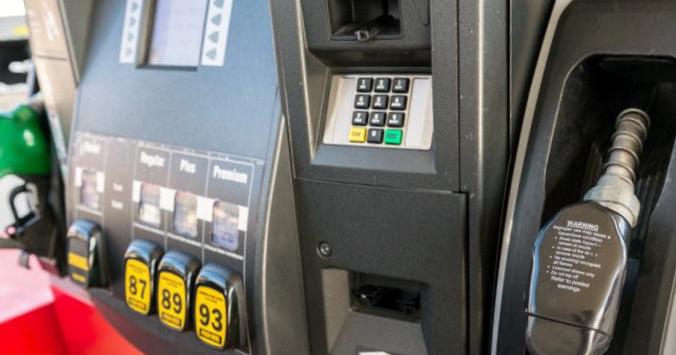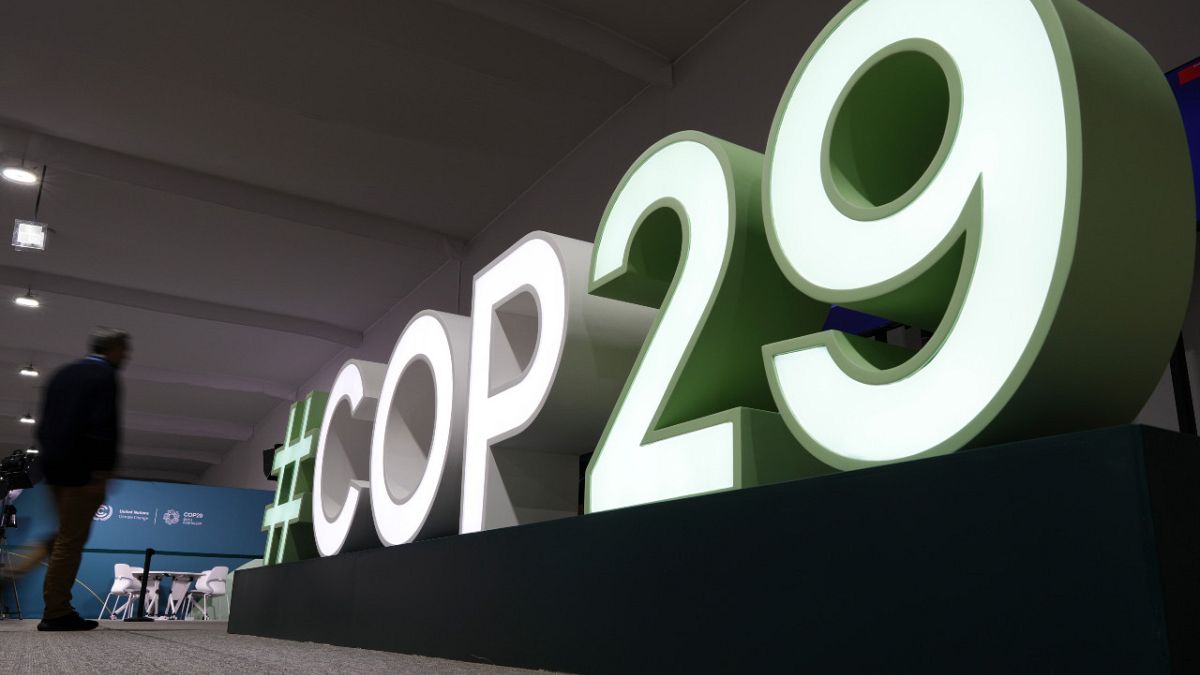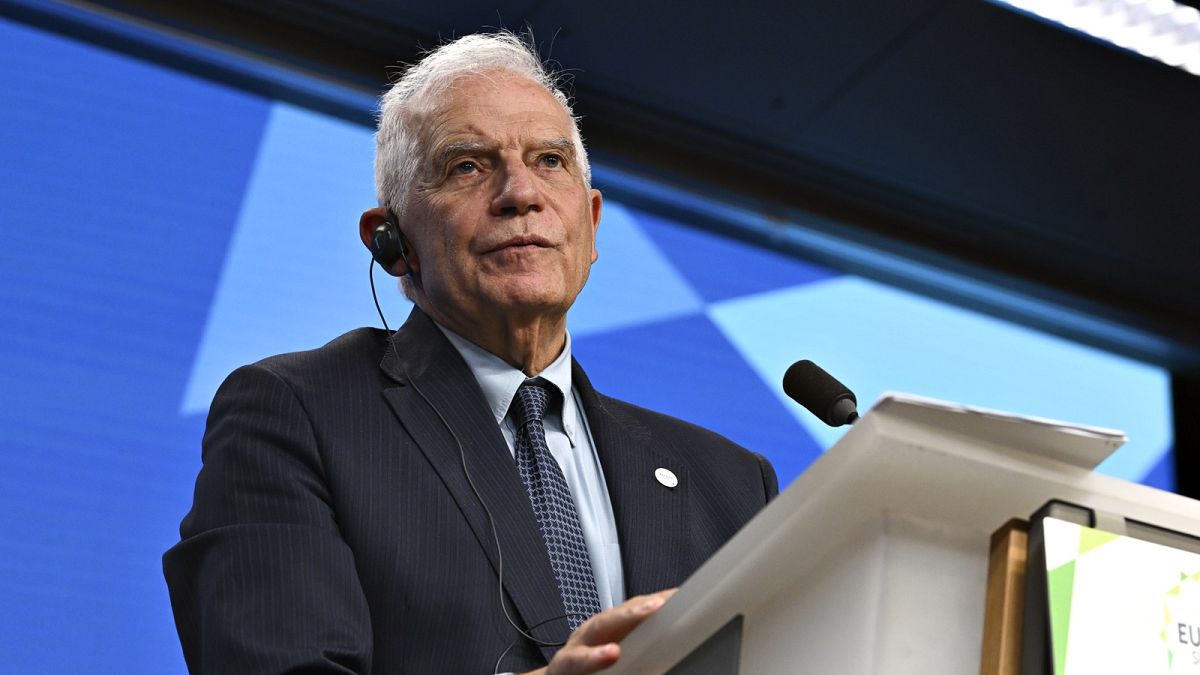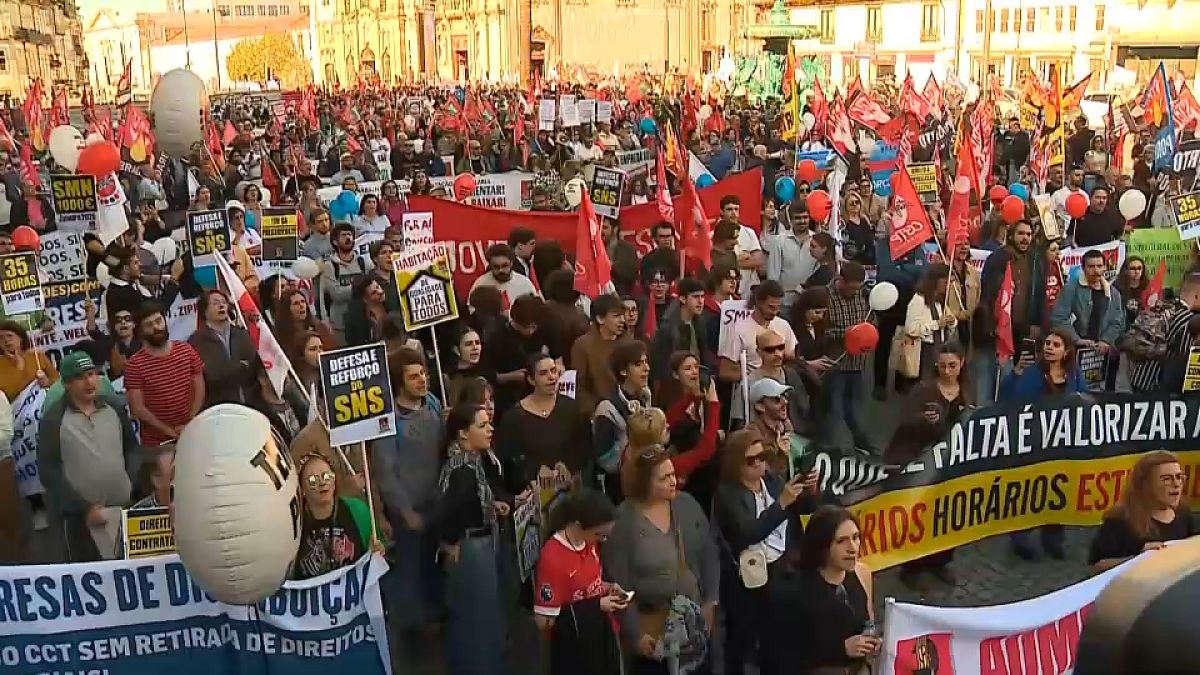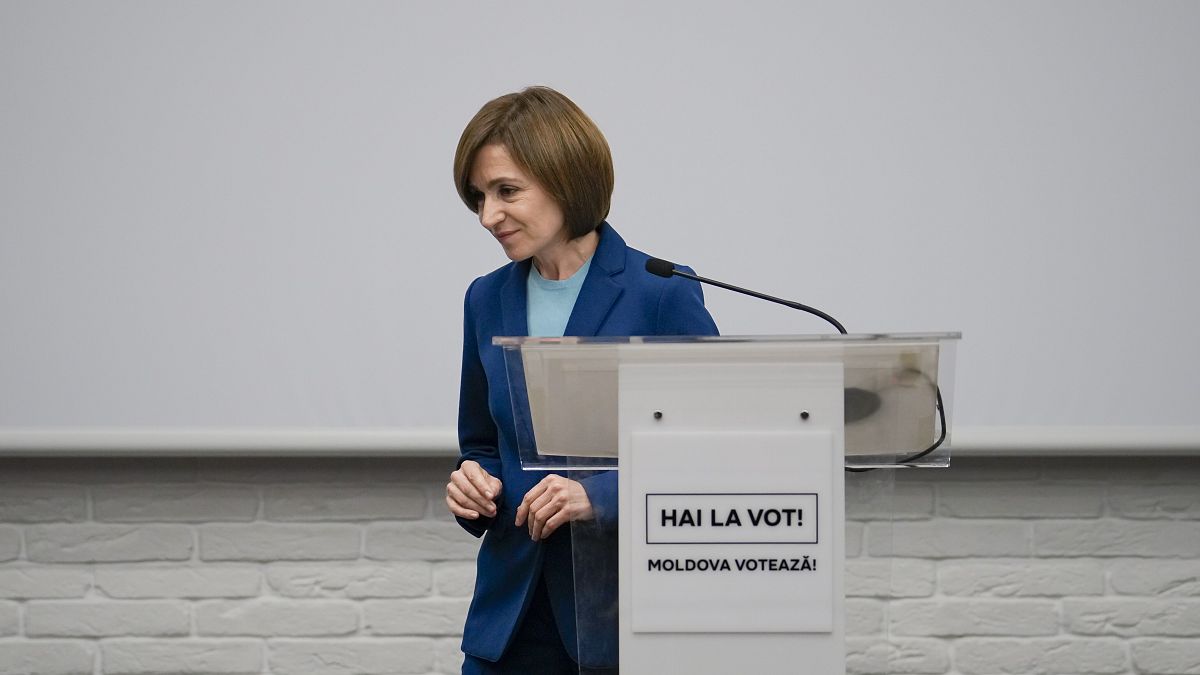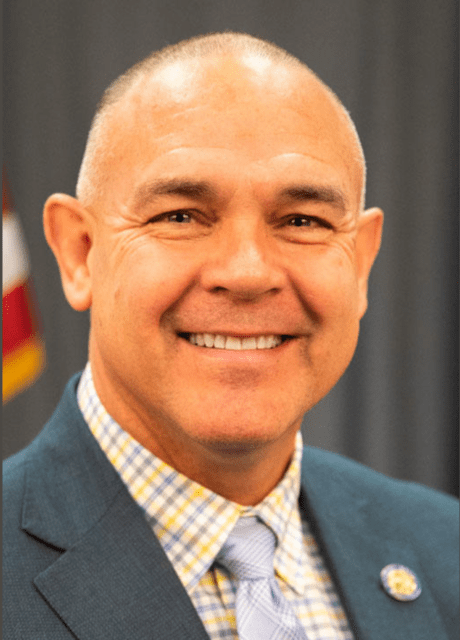World
Romania is controversially pouring billions in an offshore gas project
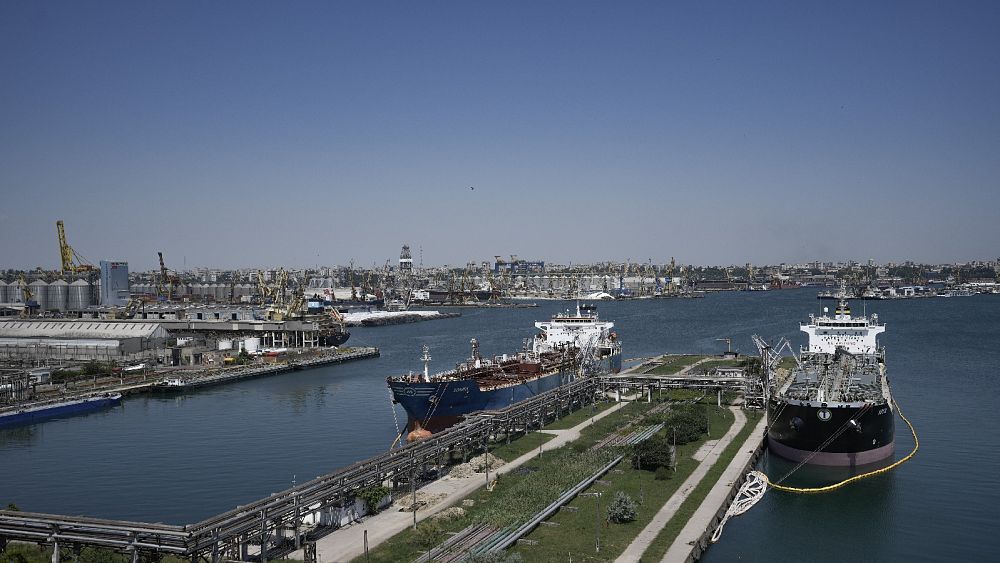
Romania has embarked on a €4 billion project it hopes will make it the largest natural gas producer in the European Union but these investments risk hampering its and the bloc’s goal of carbon neutrality.
With its Neptun Deep offshore gas project, Romania aims to extract approximately 100 billion cubic metres of natural gas and it is banking on funding allowed under the EU’s taxonomy — which categorised nuclear and gas as sustainable — to build a pipeline.
“Romania is a strategic transit point and an important regional player, being able to contribute, thanks to its operational transmission infrastructure and the geostrategic position we enjoy, to a strengthened regional security,” the country’s Energy Minister, Sebastian Burduja, said in June during the signing of the Tuzla-Podisor gas pipeline order.
This pipeline will link Neptun Deep to the BRUA pipeline supplying gas to Hungary and Austria.
Activists have however decried the project over environmental concerns.
Climate and biodiversity impact
“This project’s greatest and most damaging impact would be its climate impact,” Alin Tanase from Greenpeace Romania told Euronews.
“We expect this project to lead to fugitive methane emissions, like most projects of this nature, both at the gas probe level and at the transportation levels, as Romania has some of the oldest infrastructure in the Union. This methane is much more dangerous than CO2 – it has a higher potential to warm the climate,” he added.
The CO2 emissions should also be substantial.
“BankWatch estimated that Neptun Deep would emit 18 million metric cubes on a yearly basis, nearly as much as what the entire annual Romanian electricity sector produces at the moment. This would be a very substantial emission spike,” Raluca Petcu, BankWatch Romania’s Gas Campaigner, said.
Yet, “these emissions are not accounted for,” according to Petcu, “because they are indirect emissions, resulting from burning the gas, not the direct construction and infrastructural use. In the impact assessment evaluation these are not mentioned at all, meaning that they are not taken into account when calculating the environmental impact.”
For BankWatch this is problematic as the emissions are a direct result of the project.
Besides its significant climate impact, the Neptun Deep project poses a substantial threat to biodiversity. The documentation submitted for the project’s environmental accord highlights perturbances to fish, sea mammals, and terrestrial species as well as their habitats.
“When the documents describe a negative impact, it is always passed as temporary with claims that the habitats are expected to return to their initial state once the project is over after 20 years. It is hard to prove that this will indeed be the case,” Greenpeace’s Tanase said.
The government however argue that Neptun Deep is needed to boost the country’s and the EU’s energy security as it would weaken dependence on Russian fossil fuels.
A spokesperson for the European Commission also defended the project and the use of EU money by telling Euronews that “the Tuzla-Podisor gas pipeline fosters the diversification of the Romanian energy mix and as such can contribute to emissions reductions.”
‘Russia to oppose’ such projects
One area of concern, however, is Russia’s reaction.
Romania hopes to supply gas to Austria and Hungary through the BRUA pipeline. As these countries rely heavily on Russian gas, the project could further strain Romania’s relations with Russia.
In 2023, Hungary raised its gas imports from Russia, while Austria’s imports returned to the levels observed before Moscow launched its full-scale invasion of Ukraine.
“It is expected that Russia will oppose these natural gas projects,” The Atlantic Council, a thinktank, wrote in late July, referring to all offshore initiatives by countries with access to the Black Sea access.
After Russia’s illegal annexation of Crimea in 2014, Romania’s exclusive economic zone (EEZ) now borders Russia’s. The application of NATO protection to offshore gas facilities in the EEZ is uncertain, leaving room for Kremlin interference.
The Funding question
The EU’s Modernisation Fund – a funding programme supporting ten lower-income member states to achieve climate neutrality – has invested €85 million in the Tuzla-Podisor pipeline out of an estimated total cost of €478 million.
“Until now, Romania has been the only beneficiary member state that asked for financing for gas transmission projects,” a spokesperson for the European Investment Bank (EIB) told Euronews. The EIB has a representative on the Modernisation Fund’s Investment Committee, but its role within the Modernisation Fund is both limited and well-defined.
However, the EIB had already provided financing for the Tuzla-Podisor pipeline using its own funds through two loans: €50 million in 2018 and €100 million in 2019. The EIB spokesperson explained that these loan agreements “were approved and signed before the implementation of the Bank’s new Energy Lending Policy, which marked the end of the EIB’s financing of unabated fossil fuel projects.” The first €50 million were nevertheless disbursed in July 2023.
The Neptun Deep extraction would undoubtedly increase the share of gas in Romania’s electricity mix. In 2022, this stood at 17.6%, making it the fourth-largest source after hydropower (25%), nuclear (20%), and coal (18.5%).
However, the exact gas share increase remains unclear, depending on how much of the 8 billion cubic metres of gas extracted yearly will remain in the country.
Meanwhile, renewable energy sources, such as solar and wind, accounted for 16% in 2022.
In contrast to the Commission’s position, Nicolae Stefanuta, a Green Member of the EU Parliament, believes that “by considering gas a transitional energy, Romania is engaging in a double transition. The end costs of then switching from gas to renewables will be higher.”
A view shared by Simon Dekeyrel, an analyst at the European Policy Centre, for whom “this project reinforces Romania’s and therefore the EU’s reliance on natural gas for decades ahead.”
“EU funds should not, under any circumstances, be allocated to pipelines supporting the development of a new gas field in the EU, as is the case with the Tuzla-Podisor pipeline,” he said.

World
Cinematography Work at Camerimage Festival ‘Radically Different,’ Jury Members Say

Jurors at the EnergaCamerimage cinematography fest say the Golden Frog main competition films have been remarkably varied and inspiring in the event’s 32nd edition.
The 12 competing films “were radically different from each other,” said “Barbie” and “Killers of the Flower Moon” cinematographer Rodrigo Prieto, whose directorial debut, “Pedro Paramo,” is also screening at the fest. “I enjoyed that.”
The varied styles, approaches and storytellers, he added, defied easy categorization. “Happily, I didn’t notice trends, which I have noticed sometimes in the past in some festivals.”
Juror Anthony Dod Mantle, who won Golden Frogs in 2008 for his lensing of “Slumdog Millionaire” and in 2016 for “Snowden,” said, “I’ve been to this festival before and the overall collection of films and categories, I felt, was even wider. I feel slight absence of certain films from other ethnic backgrounds. They were different, these films, but they could be far more different.”
Greater diversity and inclusion in cinematography has justly been a hot topic this year at Camerimage, he added. “It’s good we embrace that, celebrate it here, because not many festivals do that.”
Dod Mantle described the current state of cinematography, based on what the jury’s seen this week, as “openly variable and that’s why we praise some films rather than others because they challenge convention.”
He also described the industry as “in a bit of a pickle,” adding, “We know that. We have to applaud ourselves and embrace and encourage every single essence of, molecule of, exploration and challenging cinema.”
Juror Lukasz Zal, who filmed “The Zone of Interest” and “Cold War,” said “I feel really inspired. I feel this kind of positive envy when you just see something which you admire, and love – cinema is still in good condition.”
And, he added, “I’m becoming hopeful that, OK, there’s still a lot to discover. For this, I really love Camerimage. When I was here, when I was a student, I was always coming back home after festival, with this feeling, kind of eager to work, to prepare and to just be really open and be full of ideas.”
Spending time here again as a top professional in his field, Zal said, “I feel again like a student.”
Juror Cate Blanchett said it’s clear cinematography has no crisis of creativity currently.
Instead, there’s a different issue: “The pickle is how one gets access and is able to see these films in the way that they’re intended to be seen.”
Technology advances in the field are also helping storytelling onscreen evolve, she added, rather than distracting from it. “Sometimes you can see there’s been huge technical advances made, or there’s been big innovations, and they haven’t yet been integrated into the stories that they’re being applied to. Whereas I thought there were so many films here that have really integrated the technology and in a completely adventurous and inventive way that was not pretentious. It was very interwoven and enmeshed with the performances and the stories.”
Jury duty at Camerimage is rewarding, said Dod Mantle, because the Golden Frog award can often help promising cinematographers break through to booming careers.
He described the potential effect of the award as “enormous.”
“The first time I came here, in competition,” he recalled, “it illustrated for me the jury was embracing cinema, celebrating something different and challenging.”
Cinematographers are keenly aware of the judgment of their peers, Dod Mantle added. “You feel quite vulnerable here. I’ve seen cinematographers leave the festival and go spend the weekend in Krakow and come back. The frog, ultimately is a beautiful thing celebrating our colleagues’ work.”
Juror Anna Higgs, a producer and columnist who works closely with BAFTA, said, “I think we should normalize cinematographers getting asked for their autographs – the fact that this frog is the idolized thing here.”
Blanchett added, “It’s very rare that you go to a festival where every single person in the auditorium sits right through the credit roll to the very end.” She noted “the respect that is shown to every single crewmember.”
Prieto recalled the impact of his own Golden Frog cinematography win in 2000 for “Amores Perros” fondly. “I do cherish that frog. It’s wonderful to get a frog, but more than anything, it’s a place where cinematography is the focus and is celebrated, and to share that obsession with so many people, and the energy of that, is really wonderful.”
Zal had a similar career boost, he said, after winning for lensing “Ida” by Pawel Pawlikowski in 2013. “That’s really the moment when somehow my career changed. I was always dreaming while having student films here. And it was beautiful to get an award from colleagues and being here and being among amazing cinematographers.
“I was put in competition with the people who I admire. Even now, sitting with Rodrigo, who for me was a huge inspiration. I was shooting my films in school inspired by ‘Amores Perros.’ Now we’re sitting together on the jury. That’s amazing, that’s beautiful.”
Blanchett described the close proximity of students and top international lensers as a unique strength of Camerimage, praising “the mentorship that goes on, how you’ll champion the works of other people.”
“I think that’s why it’s so vitally important that there’s an increased level of female participation. Because of the networking and mentorship opportunities and championing the work. The conversations and the opportunities that arise from those conversations are really important.”
Oscar-winning costume designer Sandy Powell (“Shakespeare in Love,” “The Aviator” and “The Young Victoria”) and cinematographer and documentary filmmaker Jolanta Dylewska also served on the Camerimage jury, calling earlier this week for greater diversity and inclusion in the industry.
World
Ukraine to analyze fragments of missile fired by Russia capable of carrying nuclear warheads

Investigators in Ukraine are analyzing the debris of a new intermediate-range ballistic missile (IRBM) fired by Russia at the city of Dnipro on Thursday, marking the first time the weapon had been used on the battlefield.
On Sunday, Ukraine’s Security Service showed the remaining fragments of the IRBM called Oreshnik – Russian for Hazel Tree – that struck a factory to The Associated Press.
Russian President Vladimir Putin confirmed the attack on Thursday evening in an address to the nation and said it was in direct response to the U.S. and the U.K. jointly approving Ukraine’s use of Western-supplied long-range missiles to target Russia.
The Pentagon has said the missile is based on Russia’s RS-26 Rubezh intercontinental ballistic missile (ICBM), though the wreckage has not yet been analyzed, according to security officials on site in an undisclosed location in Ukraine.
‘NEW’ RUSSIAN MISSILE USED AGAINST UKRAINE NOT HYPERSONIC, DEFENSE OFFICIALS SAY
Fragments of a rocket which struck Dnipro on November 21 are seen at a center for forensic analysis in undisclosed location, Ukraine, Sunday Nov. 24, 2024. (AP Photo/Evgeniy Maloletka)
The AP and other media were permitted to view the fragments before being taken over by investigators.
The wire service showed images of what it described as mangled and charred wires, along with an ashy airframe about the size of a large snow tire. The remains were all that were left of the IRBM, which can carry nuclear or conventional warheads.
“It should be noted that this is the first time that the remains of such a missile have been discovered on the territory of Ukraine,” a specialist with Ukraine’s Security Service said. The specialist only identified himself by his first name Oleh because he was not authorized to discuss the issue with the media.
1,000 DAYS OF WAR IN UKRAINE AS ZELENSKYY DOUBLES DOWN ON AERIAL OPTIONS WITH ATACMS, DRONES AND MISSILES
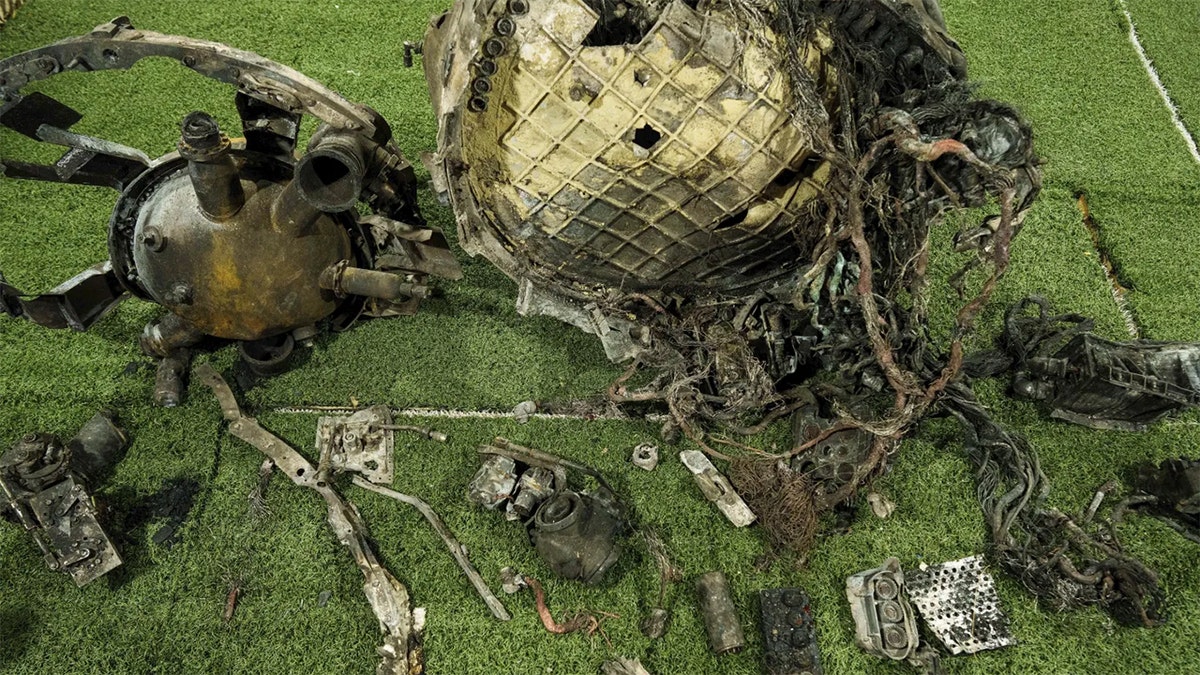
Fragments of a rocket which struck Dnipro on November 21 are seen at a center for forensic analysis in undisclosed location, Ukraine, Sunday Nov. 24, 2024. (AP Photo/Evgeniy Maloletka)
Ukraine’s Main Intelligence Directorate said the missile was launched from the 4th Missile Test Range, Kapustin Yar, in Russia’s Astrakhan region. Once launched, Ukrainian officials said, it flew for 15 minutes before striking Dnipro. The missile was carrying six warheads, each carrying six subunitions, and its speed was Mach 11.
Last week, Deputy Pentagon press secretary Sabrina Singh confirmed to reporters during a press briefing that Russia had launched the IRBM, noting that it was a “new type of lethal capability that was employed on the battlefield.”
She also said the U.S. was notified briefly before the launch through nuclear or risk reduction channels.
US EMBASSY IN KYIV CLOSED AS ‘POTENTIAL SIGNIFICANT AIR ATTACK’ LOOMS
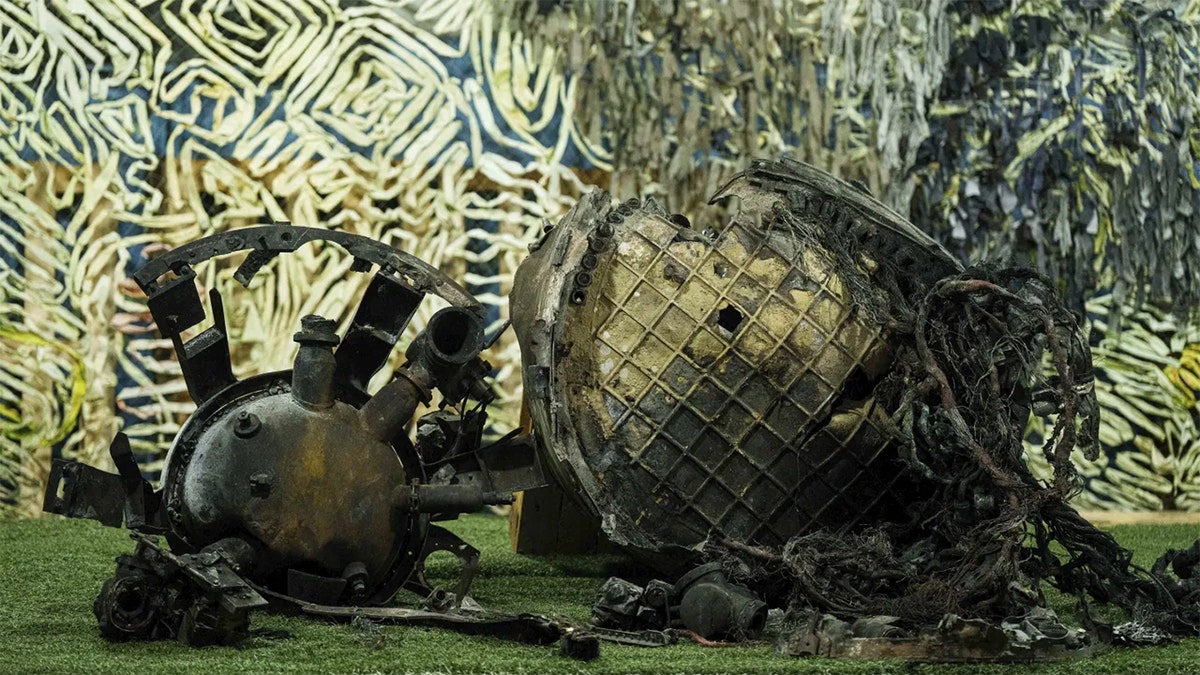
Fragments of a rocket which struck Dnipro on November 21 are seen at a center for forensic analysis in undisclosed location, Ukraine, Sunday Nov. 24, 2024. (AP Photo/Evgeniy Maloletka)
Putin also said last week that the missile attacked targets at a speed of Mach 10.
Despite Ukraine’s and Putin’s claim that the rocket reached speeds greater than Mach 10, two U.S. defense officials told Fox News on Thursday the missile was not hypersonic, which, according to NASA, is a speed greater than 3,000 mph and faster than Mach 5.
Along with launching the IRBM for the first time on the battlefield, Putin signed a law to grant debt forgiveness to those who enlist in Russia’s army to fight in Ukraine.
US BRIEFED UKRAINE AHEAD OF PUTIN’S ‘EXPERIMENTAL INTERMEDIATE-RANGE BALLISTIC’ ATTACK
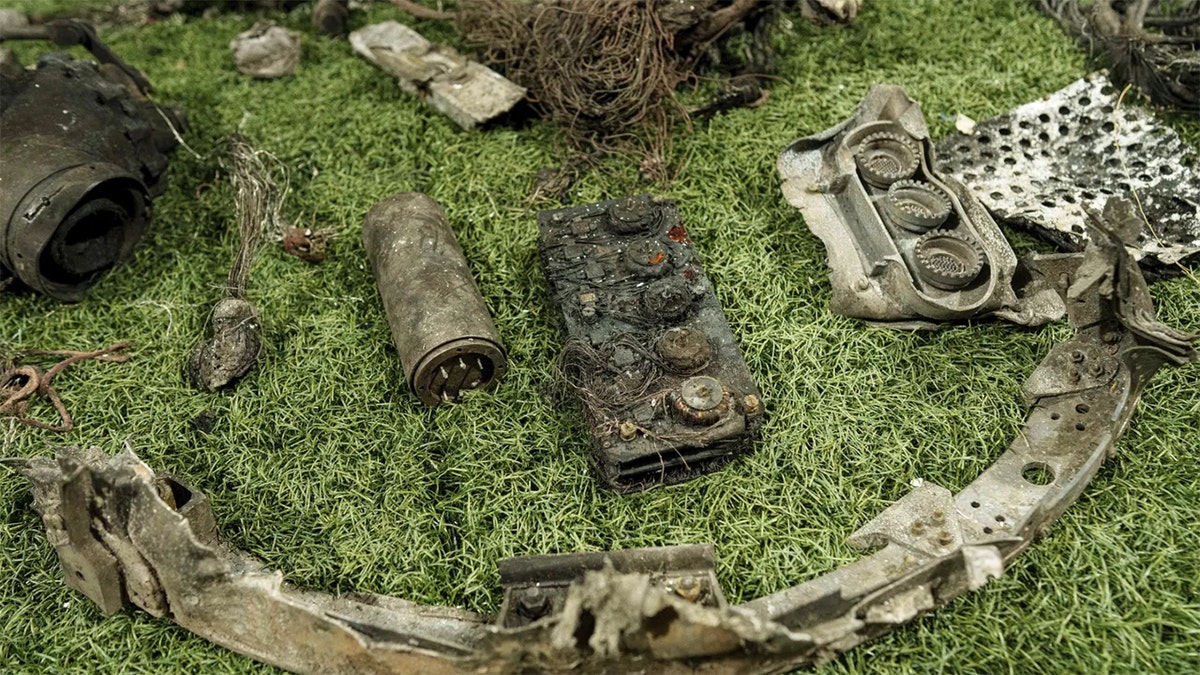
Fragments of a rocket which struck Dnipro on November 21 are seen at a center for forensic analysis in undisclosed location, Ukraine, Sunday Nov. 24, 2024. (AP Photo/Evgeniy Maloletka)
The AP reported that the measure highlights the country’s need for military personnel as it continues its war against Ukraine.
Russian state news agency Interfax said the new legislation allows new recruits enlisting for a one-year contract, to write off debts up to 10 million rubles, or about $96,000.
CLICK TO GET THE FOX NEWS APP
The law reportedly applies to debts in which a court order for collection was issued, and enforcement proceedings had commenced before Dec. 1, 2024. The legislation also applies to spouses of new recruits.
The Associated Press contributed to this report.
World
Voters in Switzerland say no to bigger motorways

The federal government argues that the volume of traffic on the motorway network has increased more than five times over the past sixty years.
Swiss voters took to the polls on Sunday to vote no to bigger motorways, no to easier evictions and tighter subletting rules and yes to a new healthcare financing model.
The Swiss government’s proposal to allocate €5.3 million for expanding motorways and constructing new roads at six key locations, including near Bern and between Geneva and Lausanne, was rejected by 52.7% of voters.
The plan, approved by parliament last year, faced opposition from those concerned about its environmental impact and effectiveness.
The federal government, argues that the volume of traffic on the motorway network has increased more than five times over the past 60 years.
The result was celebrated by the Green Party which called the proposal “an out-of-date transport policy”.
Together with left-wing and environmental groups, the Greens campaigned against the project, highlighting its environmental impact and the concern that wider roads would only lead to more traffic. They now advocate for the funds to be used for public transport, active mobility, and the renovation of existing motorways.
Mattea Meyer from the no camp expressed her satisfaction with the referendum result.
“I am incredibly pleased that a majority of the population does not want a highway expansion, and instead wants more climate protection, a transport transition that is climate-compatible, which the highway expansion is not,” she said.
According to local media to counter this decision the yes campaign, plans on moving forward with expansion projects separately through agglomeration programs, reducing the chance for cantonal referendums.
No to easier evictions
On Sunday, Swiss voters decided on multiple housing issues, such as subletting and lease termination.
53.8% of them rejected the proposal which would make it easier for landlords to terminate leases early in order to use properties for their own purposes.
Additionally, 51.6% voted against a plan for stricter regulations on subletting residential and commercial properties. According to local media, these issues attracted significant attention because tenancy laws affect the majority of Swiss citizens, with about 60% of the population renting their homes, the highest rate in Europe.
The proposal to ease eviction rules faced strong opposition, especially in French-speaking cantons, with Geneva seeing 67.8% of its voters against the plan due to the city’s ongoing housing shortage.
-

 Business1 week ago
Business1 week agoColumn: Molly White's message for journalists going freelance — be ready for the pitfalls
-

 Science5 days ago
Science5 days agoTrump nominates Dr. Oz to head Medicare and Medicaid and help take on 'illness industrial complex'
-

 Politics7 days ago
Politics7 days agoTrump taps FCC member Brendan Carr to lead agency: 'Warrior for Free Speech'
-
/cdn.vox-cdn.com/uploads/chorus_asset/file/25739950/247386_Elon_Musk_Open_AI_CVirginia.jpg)
/cdn.vox-cdn.com/uploads/chorus_asset/file/25739950/247386_Elon_Musk_Open_AI_CVirginia.jpg) Technology6 days ago
Technology6 days agoInside Elon Musk’s messy breakup with OpenAI
-

 Lifestyle1 week ago
Lifestyle1 week agoSome in the U.S. farm industry are alarmed by Trump's embrace of RFK Jr. and tariffs
-

 World7 days ago
World7 days agoProtesters in Slovakia rally against Robert Fico’s populist government
-

 News7 days ago
News7 days agoThey disagree about a lot, but these singers figure out how to stay in harmony
-

 News7 days ago
News7 days agoGaetz-gate: Navigating the President-elect's most baffling Cabinet pick
